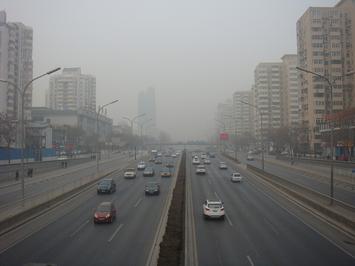
A thoroughly scientific dictatorship will never be overthrown — Aldous Huxley
In contemporary China, it’s hard to know what people outside the party dictatorship think about the future. As in the former Soviet Union, often the best guide may be not in the controlled media or cowed academia, but in the speculative wanderings of writers.
Chinese science fiction began back in the last days of the Qing dynasty, and, as author Liu Cixin suggests, became identified with a science-based optimism that fit well with the Communist vision. This has now “almost completely vanished,” he notes, replaced by a far grimmer vision.
These writers implicitly reject the notion of inevitable social progress now celebrated by President Xi Jinping and Communist-controlled media. They reflect not party orthodoxy but the most likely future, much as novels such as Yevgeny Zamaytin’s “We,” or the works of the Polish Stanislaw Lem, which identified the underlying realities of the old Soviet Empire.
The Surveillance State
These writers largely express the angst of a millennial generation, which faces a troubling future. In Chen Quifan’s “Year of the Rat,” a surplus college graduate ends up stuck hunting genetically altered rats. “We are just like rats,” the protagonist suggests, “all of us only pawns, stones, worthless counters in the Great Game.”
These writers suggest that the Chinese surveillance state, with untrammeled access to personal data, will continue to expand. Plans are being made to implant workers’ brains with monitors and to bolster a system of “social ranking,” which includes everything from credit worthiness to political reliability.
In his short story “City of Silence,” about the internet in the near future, author Ma Boyong speaks of attempts of “appropriate authorities” to restrict speech to “healthy words”; at the end of the book so few words are left that the “capital of the state” itself becomes mute.
Ma’s story suggests an autocracy amplified by technology far more subtle than the Stalinist horror depicted by George Orwell. As one dissident in “City of Silence” suggests: “The author of ‘1984’ predicted the progress of totalitarianism, but could not predict the progress of technology.”
Hierarchy in a ‘classless’ society
Hao Jingfang’s “Folding Beijing” describes a future Beijing divided into closely delineated communities for the elite, the middle ranks and a vast poor population, living largely by recycling the waste generated by the city. Hao depicts a city that literally changes shape into three forms — a luxurious first space with 5 million people, a still comfortable second space accommodating 25 million and a third space, where the protagonist, Lao Dao, lives among 50 million people clustered in dreary conditions.
Han Song’s clever “The Passengers and the Creation” speaks of a world contained within an airplane, with strict designations between first, second and coach class. The velvet curtain that separates First Class, Han writes, is “soft” but “as impenetrable as iron.” In this world, the wealthy aged live in comfort and can call on the services of young flight attendants recruited from coach.
Writers also have confronted the dire situation in the country’s countryside, where many of the some 600 million rural Chinese still live in poverty. Liu Cixin’s “The Village Schoolteacher” describes a place “so poor that a bird wouldn’t poop on it.” Mao’s revolution may have been driven by the peasants, but President Xi ‘s “moderately prosperous society” may never reach them.
The demographic crisis
China’s historic problems with overpopulation are morphing into a dearth of babies and the prospect of a rapidly shrinking workforce. This is made worse by a huge unbalance, about 33 million, of marriage-age boys over girls. By one estimate, 37 million Chinese girls were lost by abortion or infanticide since the “one child” policy came into force in 1980. China’s current male generation is so socially disconnected that the Communist Party, and some private firms, now teach them how to date.
Maggie Shen’s remarkable novel “An Excess Male” describes a society where women are allowed to take more than one husband, all to encourage greater breeding and relieve social pressures. Shen’s heroine May-ling is married to two men, neither of whom is much interested in carnal relations with her, and is looking to marry a third, an “excess male,” in order to have more children.
Life is made more problematic by the fact that May-ling’s favorite husband, Hann, is gay. In the China of the future, people designated “willfully sterile” are persecuted for not procreating. The state, whose policies fostered a looming demographic disaster, persecutes innocent citizens who don’t care to solve the country’s demographic shortfall.
Ultimately, the science fiction writers tell us much you won’t hear from the official sources or that country’s admirers here or in Europe. China could well be evolving into an authoritarian dystopia. True heirs to Orwell, Huxley and Zamaytin, these brave artists portray not only a view of China’s future but offer a window to its already existing contemporary reality.
This piece originally appeared in The Orange County Register.
Joel Kotkin is the Presidential Fellow in Urban Futures at Chapman University, director of the Chapman Center for Demographics and Policy and executive director of the Center for Opportunity Urbanism in Houston, Texas. He is author of eight books and co-editor of the recently released Infinite Suburbia. He also serves as executive director of the widely read website www.newgeography.com and is a regular contributor to Forbes.com, Real Clear Politics, the Daily Beast, City Journal and Southern California News Group.
Photo credit: The Erica Chang [CC BY 3.0], via Wikimedia Commons












